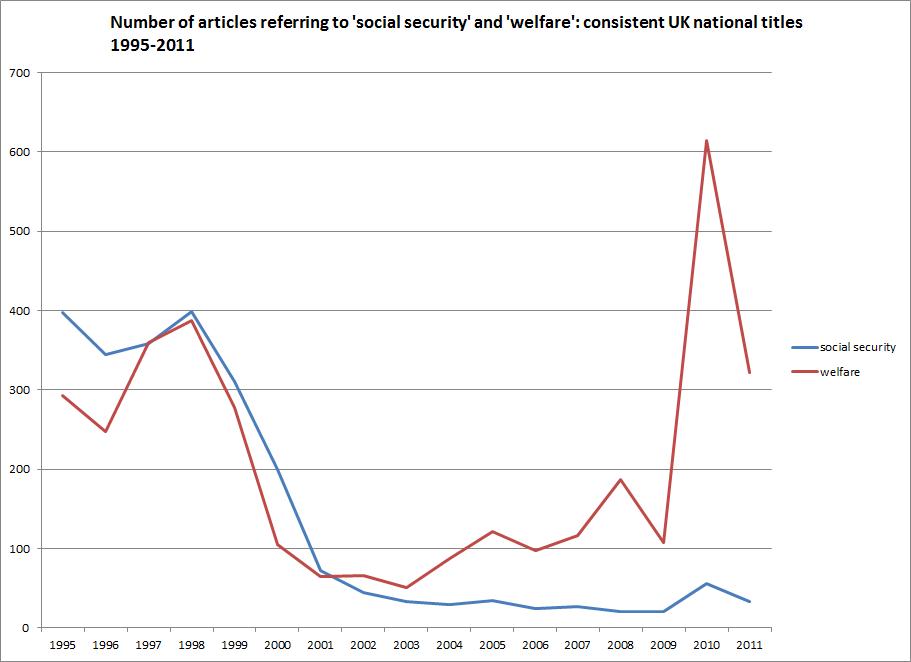The language that we used

It's been widely noted that Ed Miliband made a point of using the words 'social security' in his major speech today http://labourlist.org/2013/06/full-text-ed-miliband-speech-a-one-nation-.... Richard Exell comments: ...'it was nice to hear the term “social security” being rehabilitated by a leading politician. Ever since we imported the American habit of calling the benefit system “welfare” we seem to have moved closer and closer to American attitudes too. Mr Miliband made quite a few references to the “welfare state” or the “welfare system”, but the Labour leadership seems to have returned to talking about social security and benefits' http://touchstoneblog.org.uk/2013/06/ed-milibands-social-security-speech
Ruth Lister has long argued that the language we use to talk about the benefit system is rarely neutral: in her view the shift from 'social security' to 'welfare' is a move fraught with ideological associations. In an article earlier this year she raised the question of when the shift took place: 'It's difficult to put a finger on when exactly welfare replaced social security in the political and media lexicon. Retrospective media analysis would probably show that the term welfare was used increasingly during the 1990s often in a derogatory manner – a 1993 Sunday Times splash about lone mothers being "wedded to welfare" being a typical example.'http://www.guardian.co.uk/commentisfree/2013/apr/01/language-welfare-soc...
I can't offer a full retrospective media analysis, but I thought it would be interesting to look at how often articles in the national press featured the two terms from the mid 1990's on (unfortunately I can't go back any further). This is shown in the chart, using data from a project on benefit stigma which Kate Bell, Ben Baumberg and I carried out for the charity Turn2Us last year http://www.turn2us.org.uk/PDF/Benefits%20Stigma%20in%20Britain.pdf. There's one important thing to bear in mind in interpreting the chart: up to 2001, Great Britain had a Department of Social Security. That obviously affects the number of media references to 'social security' up to that point, though there's no reason it should affect references to 'welfare', a term with no institutional meaning in the UK. Note also that the chart is just showing a count of articles using these terms - it doesn't offer evidence either way as to whether 'welfare' was being used in 'a derogatory manner'. (Our database would allow us to look at this as well, but that's for another day.)
With that caveat, the rise of 'welfare' in the mid to late 90s is clear from the chart. In Labour's first term in office, it reached parity with 'social security'. In the 2000s, in the wake of Labour's first period of 'welfare reform' media references to the benefit system drop away for an extended period, but 'social security' appears in only a small minority of articles and 'welfare' increasingly dominates. Most strikingly, in 2010 there is a huge rise in the number of articles on benefits, but only a slight uptick in the number referring to social security while 'welfare' surges away, with the highest number of references on record.
The timing of the rise of 'welfare' and its recent surge support the view that this is essentially a political phenomenon: 'welfare' replaced 'social security' because the media coverage takes its cue from politicians, and politicians were talking about 'welfare'. So it will be interesting to see if Ed Miliband's apparent shift back to a vocabulary of social security shows up in a later version of this analysis, should there be one.